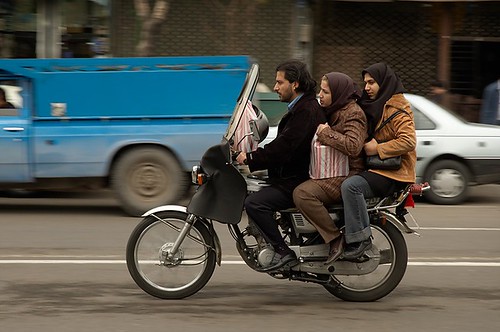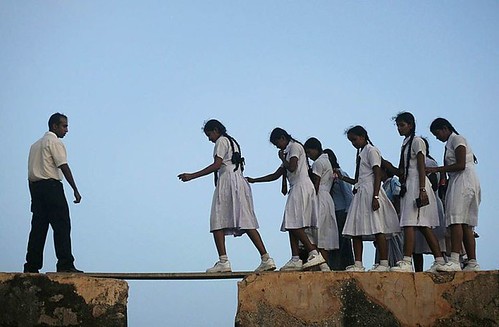1. Leaving home. Establishing independence from home supervision.
*Emergence from parental supervision
*Reliance from the security one can give self rather than security provided by the parents.
*Development of an attitude towards parents as friends rather than protectors and supervisors.
*Planning of one’s own time and making one’s own decisions without parental control.

Free from parental supervision
In psychotherapy there is a general rule of thumb for the adolescent or adult client. Do they refer to their parents as mummy & daddy, mum & dad or Fred & Alice. This is about getting a psychological divorce from ones parents and if one refers to their parents by their christian names then they are more likely to have resolved this dilemma. If they refer to them as mummy and daddy then there can be considerable emotional immaturity.
To become an adult or a person in ones own right one must learn how to deal with the good and bad events in life. How to deal with things like gossip, rejection, feeling scared, ashamed, angry. It is the overprotective parents cause the most problems with this psychological struggle.
This also refers to the geographical separation from the parents such as moving out into an abode of their own. Physically leaving home can greatly assist the child in resolving this psychological struggle. This need can also be reflected in the desire of younger people to travel and see some of the world without the parents being present.

Family
2. Emotional maturity. A person does not become an adult until he has abandoned childish or adolescent ways of reacting emotionally.
*Substitution of harmless instead of harmful ways of expressing emotion. For instance young children hit and bite when angry. Temper tantrums is another example.
*Learning to react to emotional situations objectively. If someone is angry at what you have done, to be able to assess objectively if their anger is justified or not. Being able to move beyond simple revenge responses or an eye for an eye thinking.
*Learning to accept criticism without hurt feelings.
*Learning to face things that are unpleasant instead of running away from them.
*Elimination of childish fears and anxieties.
3. Social maturity. This is not independence from home but maturity in one’s own social circle.
*Development of a sense of security in one’s social circle.
*Ability to get along with others in peer relationships
*Ability to take part in the activities of the group, without trying to either dominate it or be excessively submissive in it.
*Freedom from excessive dependence on one’s social group. This allows one to go some what against the norms of the group but still remain part of it.
*Development of a tolerance to different social groups.

Choosing who to be friends with is up to them
Teenagers have an acute interest in social matters. They can be dependent and meticulously imitate their friends and social group. This serves a real and positive purpose in the break away from the parents. However it can become a problem in itself if the person merely becomes a slave to the norms of the group instead of the parents.
4. Beginnings of economic independence. One cannot truly become psychologically adult until they earn their own living.
*Reasonably accurate estimate of one’s abilities
*Selection of a field of work in which success is possible
*Completion of enough training to get started in one’s career
*Realising the need to work

One can not become who they are without economic independence.
This is a distinctive difficulty for children from wealthy families. Many parents will promote economic ties as a way to keep children around. This also highlights the difficulty when a child goes into the family business and is why often the second generation in the family business in much less successful. If given an easy path into the family business they tend to be more interested in the spoils of it than making it profitable.
In western society these psychological struggles have gained extra importance in recent years as they evolve more and more into nanny states. As the state takes more and more responsibility to protect and look after its young it is becoming harder and harder for them to evolve into what is seen as psychologically adult.

We are making it harder and harder for the young to become psychologically independent. To do that they have to take risks of their own and that means some of them will get hurt and some will even die. We have to accept that there will be casualties or risk the predicament of promoting a generation of dependents.
Graffiti
Hmm, Tony.
ReplyDeleteThese are good points. Growing up takes decades and these are some good things that need to be taken into consideration for families who are living in this (Australia's) social climate as it stands today.
Hope your Monday tickles a giggle out of you.
This is also my third attempt to make a comment on this post. I've copyied this one just in case. Cheers...
Well of course this one got through!
ReplyDeleteI am really irritated with the state at the moment; the need to regulate as adult citizens clearly cant take responsibility for their own actions!
ReplyDeleteI think Britain has the highest density of CCTV of any country. Big Brother watching us. I wonder if average Joe realises that and I wonder what psychological impact, if any, it has on us.
G’day Kahless,
ReplyDeleteI'm afraid it seems that lots of adult citizens clearly can't (won't) take responsibility for their (our) own actions. I guess that's the 'Parent' state kicking in. If there is always a parent then there will always be rebellion in an attempt to break away - to learn to rule one's self – or those who will sit back and be spoon fed (for some - bottle fed with nappy changes to boot) for the rest of our lives. I break the rules (law) all the time – just because I can. Laws only work if people abide by them anyway.
In a sense though, it seems there will always be an element of parental boundary - if not from without, then definitely from within.
I don't like the topic. It makes me angry. Everyone has their own idea of what is right and wrong - nice and not so nice - and so all rules made umbrella certain sectors of the world – the ones that 'fit in' – but because everyone is different so many will never make the grade. Its far from 'fair' and eons away from good leadership but for now, its all we have i guess.
It is irritating. Surely someone has the answer.
Oh my goodness! Thus speaks roses.
ReplyDeleteI'm so sorry about the rave - i just wish that the answer to the state type problems would be implemented and be done with.
It's all so annoying! Have a nice day
roses
Hello Roses and Kahless,
ReplyDeleteYou wont get any argument from me about us being nannied out of our litle minds by the state.
I concur with what you say and wish the youth would start protesting about it but they just don't. Maybe their children will? One can only hope
Tony
My 19 year old son is very immature, particularly in areas 2 and 4. He has an attitude of "I want to do what feels good right now this very minute without regard to anything that is going to happen to me after this minute is over." He lives in some altered reality, with no thoughts about consequences. Hopefully as his brain matures, he will also.
ReplyDeleteLittle minds?
ReplyDeleteLittle minds?!
You are welcome to speak for yourself at any time thank you Mr Graffiti Sir - this, after all, is your blog but i do wish you wouldn't pull me in under the umbrella you've decided to sit under.
By the way... while we're here under this particular umbrella, did you remember to bring the thermos? I brought the Monte Carlo's.
Hi Harriet,
ReplyDeleteI have sons about the same age and they can also be somewhat unthinking and self involved. However they do both have very good work ethics so that is a positive.
thanks for dropping by
Tony
Sorry Roses, For asserting that you might be intellectually challenged.
ReplyDeleteOK I will bring the Tim Tams and Golden Circle pineapple juice for our little picnic
Graffiti
Ohhhh! Pineapple juice is my favorite of all!
ReplyDelete